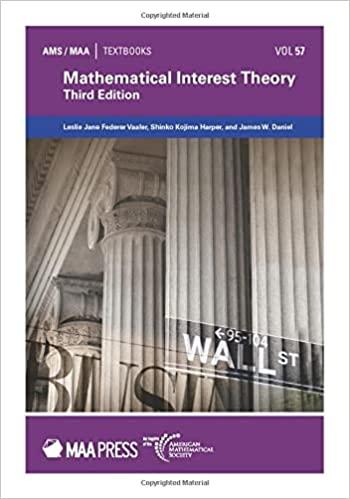Example 2 showed how the statistics of n = 22 and s = 14.3 result in this
Question:
Example 2 showed how the statistics of n = 22 and s = 14.3 result in this 95% confidence interval estimate of σ: 11.0 < σ < 20.4. That confidence interval can also be expressed as (11.0, 20.4), but it cannot be expressed as 15.7 ± 4.7. Given that 15.7 ± 4.7 results in values of 11.0 and 20.4, why is it wrong to express the confidence interval as 15.7 ± 4.7?
Data Set 7 “IQ and Lead” in Appendix B lists IQ scores for subjects in three different lead exposure groups. The 22 full IQ scores for the group with medium exposure to lead (Group 2) have a standard deviation of 14.29263. Consider the sample to be a simple random sample and construct a 95% confidence interval estimate of s, the standard deviation of the population from which the sample was obtained.
Data Set 7: IQ and Lead
Data are from 121 subjects (first five rows shown here). Data are measured from children in two consecutive years, and the children were living close to a lead smelter. LEAD is blood lead level group [1 = low lead level (blood lead levels < 40 micrograms/100 mL in both years), 2 = medium lead level (blood lead levels ≥ 40 micrograms/100 mL in exactly one of two years), 3 = high lead level (blood lead level ≥ 40 micrograms/100 mL in both years)]. AGE is age in years, SEX is sex of subject (1 = male; 2 = female). YEAR1 is blood lead level in first year, and YEAR2 is blood lead level in second year. IQ VERB is measured verbal IQ score. IQ PERF is measured performance IQ score. IQ FULL is measured full IQ score.
Data are from “Neuropsychological Dysfunction in Children with Chronic Low-Level Lead Absorption,” by P. J. Landrigan, R. H. Whitworth, R. W. Baloh, N. W. Staehling, W. F Barthel, and B. F. Rosenblum, Lancet, Vol. 1, No. 7909.

Step by Step Answer:

Mathematical Interest Theory
ISBN: 9781470465681
3rd Edition
Authors: Leslie Jane, James Daniel, Federer Vaaler





